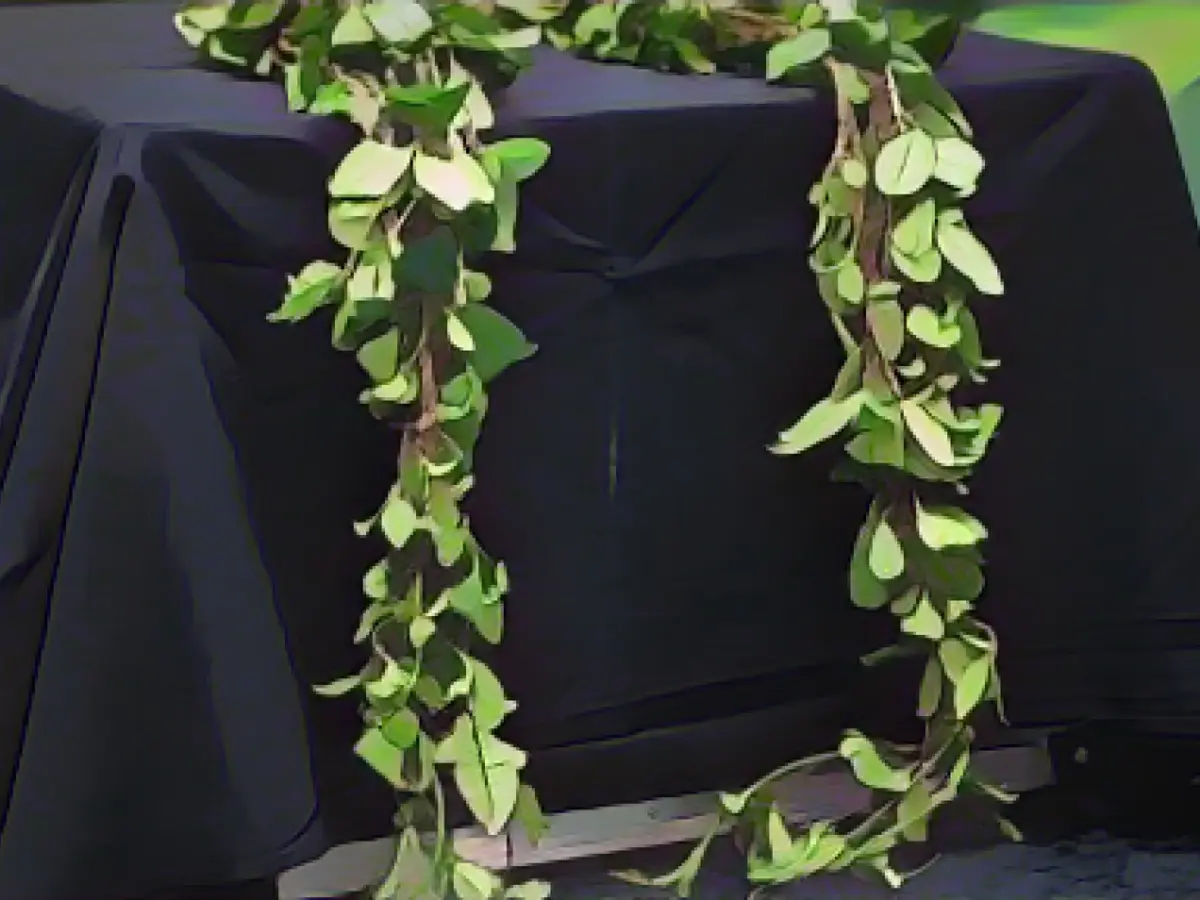History - 2000 human remains from colonial times in collections
In festive ceremonies in late spring, Baden-Württemberg handed over human remains to the US state of Hawaii and to a delegation from New Zealand. Even then it was clear that these were only a small proportion of the remaining remains in the larger state collections of museums and universities in the state. According to a new survey, at least 2000 human remains from colonial contexts are still stored there.
The number was determined by the Contact Point for Collections from Colonial Contexts in Germany. A total of around 17,000 human remains from colonial contexts were found in the 33 institutions surveyed across Germany. However, the exact number could be even higher than the estimates given, it was reported in Berlin on Friday.
The basis was a survey of institutions with relevant holdings of human remains in anthropological, anatomical, medical-historical, ethnological or palaeontological collections. According to the Baden-Württemberg Ministry of Science, the collections of the universities of Freiburg and Tübingen, the state natural history museums in Karlsruhe and Stuttgart and the ethnological Linden Museum in Stuttgart were included in the survey.
Skulls, complete skeletons or parts thereof and hair samples are still kept there. The remains mostly come from Africa, but also from countries in America, Asia and Oceania. The exact origin is unknown in many cases - just like in the other German institutions, according to the ministry in Stuttgart.
"The question of how to deal with human remains in German museum and university collections arises for all owners of relevant collections," said Baden-Württemberg's Science and Art Minister Petra Olschowski (Green Party) on Friday. "It is good that the states, federal government and local authorities see this issue as a joint task."
The so-called repatriations from Baden-Württemberg are part of the wider context of the return of museum exhibits from the colonial era. Museums want to make their contribution to restitution when dealing with colonial heritage. This is because the pieces were acquired in former European colonies, where the conditions were characterized by the power imbalance between the colonial power and the locals.
Nationwide, however, around 46 percent of the remains cannot yet be geographically assigned. "In addition, it is not clear to whom we would have to return them," said Olschowski. What is needed is knowledge and perspectives from the countries of origin, exchange and cooperation with descendants, institutions and experts. "We are already in good talks. The experience we have been able to gain from the restitutions so far will help us and our institutions."
According to the Minister, general ethical standards for appropriate storage in the collections are to be developed, among other things. The results are to be discussed in particular with experts from the countries of origin. In addition, it is necessary to discuss what should be done with human remains whose origin cannot be clarified.
The report
Read also:
- A clan member is punished here
- Traffic lawyer warns: Don't talk to the police!
- Will he be convicted as Jutta's murderer after 37 years?
- He also wanted to kill his cousin
- The survey conducted by the Contact Point for Collections from Colonial Contexts in Germany revealed that at least 2000 human remains from colonial contexts are still stored in the larger state collections of museums and universities in Baden-Württemberg.
- The universities of Freiburg and Tübingen, as well as the state natural history museums in Karlsruhe and Stuttgart, and the ethnological Linden Museum in Stuttgart were included in the survey of institutions with relevant holdings of human remains.
- Petra Olschowski, the Science and Art Minister of Baden-Württemberg, stated that dealing with human remains in German museum and university collections is an issue that arises for all owners of relevant collections.
- The so-called repatriations from Baden-Württemberg are part of the wider context of the return of museum exhibits from the colonial era, with museums aiming to make their contribution to restitution.
- According to Olschowski, around 46 percent of the remains cannot yet be geographically assigned and it is not clear to whom they would have to be returned.
- To address these issues, general ethical standards for appropriate storage in the collections are to be developed and discussed with experts from the countries of origin, with the aim of clarifying what should be done with human remains whose origin cannot be determined.
- The findings and discussions regarding the human remains from colonial contexts in museums and universities in Baden-Württemberg are also relevant and applicable to the cultural policy and museums in other parts of Germany, such as Berlin.
Source: www.stern.de








